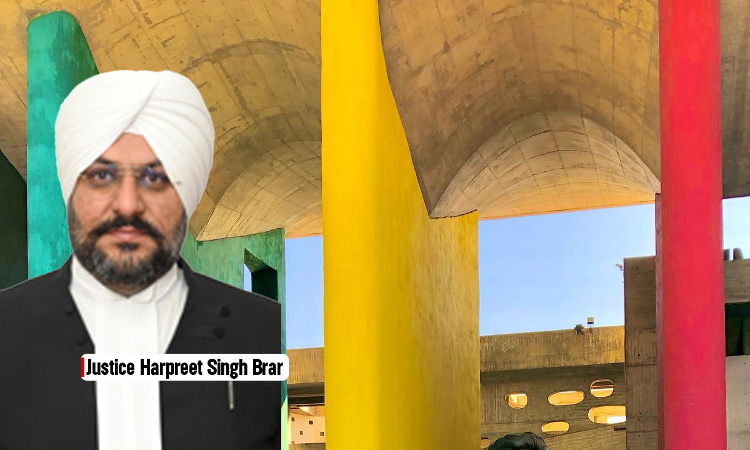- Home
- /
- High Courts
- /
- Punjab and Haryana High Court
- /
- 'Draconian': Punjab & Haryana High...
'Draconian': Punjab & Haryana High Court Slams Practice Of Opposing Bail When Accused Refuses To Testify Against Himself
Aiman J. Chishti
13 May 2025 4:33 PM IST
"Opposing the release of an accused on bail solely because he refuses to testify against himself is a draconian practice that, in good conscience, cannot be allowed to continue unchecked by the Court", said the Punjab & Haryana High Court while allowing a pre-arrest bail in vehicle theft case.Justice Harpreet Singh Brar noted that in the status report filed by the State it has been...
"Opposing the release of an accused on bail solely because he refuses to testify against himself is a draconian practice that, in good conscience, cannot be allowed to continue unchecked by the Court", said the Punjab & Haryana High Court while allowing a pre-arrest bail in vehicle theft case.
Justice Harpreet Singh Brar noted that in the status report filed by the State it has been stated that the accused failed to cooperate during the investigation because he refused to answer questions, hence his custody is required.
Flagging a "curious trend", where the jurisdictional police authorities deem the bail applicant to be uncooperative merely because he would not confess to his guilt, the Court said, "Article 20(3) of the Constitution of India categorically provides protection against self-incrimination."
The Court referred the Selvi Vs. State of Karnataka, [(2010) 7 SCC 263] to underscore that while there is no bar in directing the accused to give any physical evidence such as his fingerprints, blood sample, signatures specimen etc., he cannot be expected to make self- inculpatory statements as that would amount to testimonial compulsion.
The bench noted that under the garb of non-cooperation during investigation, the investigating agency is compelling the petitioner to make self-incriminating statements.
Justice Brar highlighted that it is the "duty of the Investigating Officer to conduct a fair, impartial, and thorough investigation by gathering all relevant evidence, both oral and documentary, to establish the truth of the matter". Relying "solely" on self-incriminating statements made by the accused is not only legally unsound but also contrary to the principles of natural justice and fair trial, added the judge.
"It is the responsibility of the investigating officer to actively seek out such corroborative material and build a case based on objective findings rather than mere admissions, which may be influenced by coercion, fear, or misunderstanding," the bench said.
The Court was hearing the anticipatory bail plea under Section 303 of the Bharatiya Nyaya Sanhita, in a case pertaining to vehicle theft.
Counsel for the petitioner contended that the complainant in the present case is a person of financial fortitude and he is owner of a big construction company. The jurisdictional police authorities in Gurugram are acting under his influence and have falsely implicated number of persons, who are having clean antecedents, purely in the case of theft of vehicle in question, he added.
Considering that the maximum sentence for the offences, under which the FIR (supra) is registered, is upto 07 years and the petitioner is having clean antecedents, the Court allowed the grant anticipatory bail.
Mr. Tarun Singla, Advocate for the petitioner.
Mr. Vikas Bhardwaj, AAG, Haryana.
Title: Jatinder Singh v. State of Haryana
Click here to read/download the order

